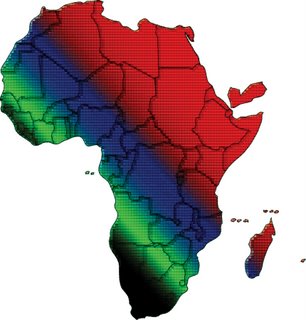
The AIDS epidemic is a global emergency that affects people in every country on earth. UNAIDS estimates that by the end of 2005 a total of 25 million people had died of AIDS since 1981.
In 2005 alone
- 38.6 million people were living with HIV
- 4.1 million people were newly infected
- 2.8 million people lost their lives
There is new evidence that adult HIV infection rates have decreased in certain countries and that changes in behaviour to prevent infection—such as increased use of condoms, delay of first sexual experience and fewer sexual partners—have played a key part in these declines. The new UN report also indicates, however, that overall trends in HIV transmission are still increasing, and that far greater HIV prevention efforts are needed to slow the epidemic.
Despite decreases in the rate of infection in certain countries, the overall number of people living with HIV has continued to increase in all regions of the world except the
Treatment makes a difference. More than one million people in low-and middle-income countries are now living longer and better lives because they are on antiretroviral treatment and an estimated 250 000 to 350 000 deaths were averted this year because of expanded access to HIV treatment. that a comprehensive response to HIV and AIDS requires the simultaneous acceleration of treatment and prevention efforts with the ultimate goal of universal access to prevention, treatment and care.

No comments:
Post a Comment